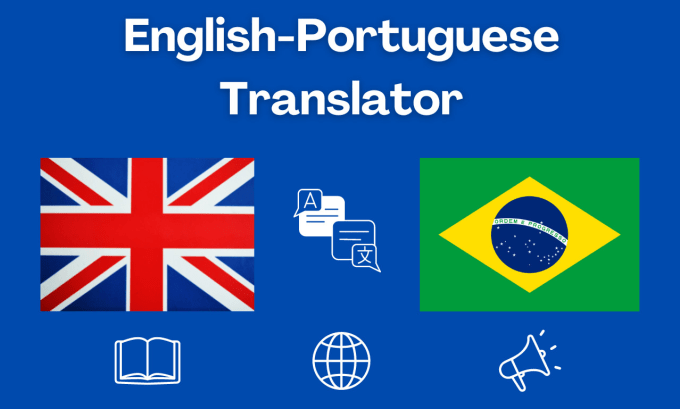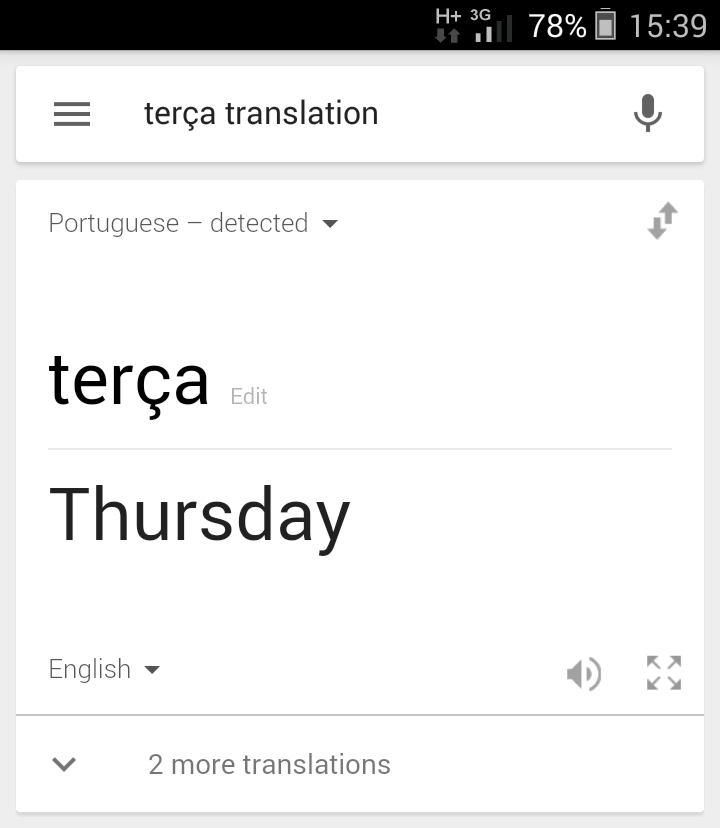Certified English To Portuguese Translation for Certification
Certified English To Portuguese Translation for Certification
Blog Article
Top Tips for Perfect English to Portuguese Translation Services
Accomplishing remarkable English to Portuguese translation needs even more than mere word-for-word conversion; it demands an understanding of cultural nuances and linguistic intricacies. Picking certified translators that are both culturally aware and proficient is critical. Similarly vital is the technique of localization, which entails tailoring content to regional variants. In addition, employing contextual references ensures that the original tone and meaning are preserved. However, the journey doesn't end there; a rigorous review and modifying process is essential. What various other critical factors should be considered to elevate translation quality better?
Understand Cultural Nuances
When equating from English to Portuguese, understanding the social nuances is important for producing a resonant and exact message. The Portuguese-speaking globe is diverse, including numerous areas, each with its distinct personalizeds, expressions, and social standards. A translator needs to be in harmony with these nuances to ensure that the translation not just shares the desired message yet additionally resonates with the target audience.
As an example, idiomatic expressions in English may not have direct equivalents in Portuguese. A phrase that functions well in one society might lead to confusion or misinterpretation in an additional. Understanding regional languages and variants, such as those discovered in Brazil and Portugal, is vital; words might hold different connotations or uses depending upon the place.
In addition, social context plays a significant function in translation. Inevitably, a complete understanding of cultural subtleties is crucial for supplying translations that are not just linguistically precise yet also culturally relevant and appealing.
Select Certified Translators
Choosing certified translators is a critical step in making certain the accuracy and quality of English to Portuguese translations. A translator's knowledge not only encompasses language proficiency but likewise a deep understanding of social context, idiomatic expressions, and industry-specific terminology. When picking a translator, prioritize those with official training in translation research studies or grammars, along with relevant certifications that show their professional proficiency.
Experience plays an essential role also; translators focusing on certain fields-- such as lawful, medical, or technical-- are a lot more likely to supply exact translations customized to the market's standards (English To Portuguese Translation). Furthermore, consider their profile and client testimonials to examine their previous job top quality and reliability
Engage translators that are indigenous Portuguese speakers, as they possess a natural understanding of the language's subtleties and local languages. This familiarity boosts the translation's credibility and effectiveness.
Usage Contextual Referrals

When translating, it is necessary to identify colloquial expressions and cultural referrals that might not have straight matchings in Portuguese. webpage Specific phrases that resonate in English may call for adaptation to share the same psychological weight or social value in Portuguese. Using contextual references can assist translators select the ideal terminology and design, thus enhancing the general clearness and impact of the translation.

Emphasis on Localization
Localization plays a crucial function in the translation procedure from English to Portuguese, as it guarantees that the translated web content is appropriate and culturally ideal to the target audience. English To Portuguese Translation. This procedure exceeds mere translation; it includes adjusting the content to the social, social, and etymological nuances certain to Portuguese-speaking areas
Recognizing regional idioms, customs, and choices is vital. As an example, certain phrases or references that reverberate with an English-speaking audience may not have the exact same effect on Portuguese speakers. It is crucial to consider local variants, such as Brazilian Portuguese read versus European Portuguese, as each has distinctive vocabulary and stylistic differences.
In addition, localization encompasses format, such as date and time formats, currency, and measurement devices, which can vary significantly throughout cultures. This interest to information fosters a link with the audience, boosting interaction and comprehension.
Moreover, using neighborhood languages and jargon can give credibility, making the material extra relatable. By concentrating on localization in English to Portuguese translation, services can efficiently communicate their message, build depend on with their target market, and inevitably achieve their desired objectives.
Evaluation and Edit Thoroughly
Complete evaluation and modifying are important steps in the translation procedure, especially when transforming English material into Portuguese. This phase guarantees that the translated product not just retains the original meaning however additionally resonates well with the target market. Provided the linguistic and cultural subtleties, a careful strategy to review and modifying is necessary.
Begin by comparing the initial English text with the Portuguese translation, paying very close attention to context, terminology, and tone. It's critical to ensure that colloquial expressions and social recommendations are properly adjusted for the Portuguese audience. Involving a second translator or a native speaker for this evaluation process can offer very useful understandings and capture errors that might have been forgotten.
Furthermore, check for grammatical accuracy and stylistic uniformity throughout the file. Typical challenges such as ambiguous phrases or false cognates must be dealt with to prevent false impression.
Final Thought
Achieving phenomenal English to Portuguese translation solutions necessitates a comprehensive method that incorporates understanding cultural subtleties, picking certified translators, using contextual references, focusing on localization, and carrying out thorough evaluations and edits. Each component plays a critical role in guaranteeing that translations are not only accurate however likewise reverberate with the target market. By Visit Website executing these techniques, companies can improve the effectiveness of their communication and foster a deeper connection with Portuguese-speaking target markets.
Accomplishing remarkable English to Portuguese translation calls for even more than mere word-for-word conversion; it requires an understanding of cultural nuances and linguistic complexities.Selecting certified translators is an important step in ensuring the accuracy and top quality of English to Portuguese translations.Complete evaluation and editing and enhancing are important steps in the translation procedure, specifically when transforming English web content right into Portuguese.Begin by comparing the original English text with the Portuguese translation, paying close attention to context, terminology, and tone.Attaining remarkable English to Portuguese translation services demands a detailed method that incorporates understanding cultural subtleties, picking qualified translators, utilizing contextual references, prioritizing localization, and performing comprehensive testimonials and edits.
Report this page